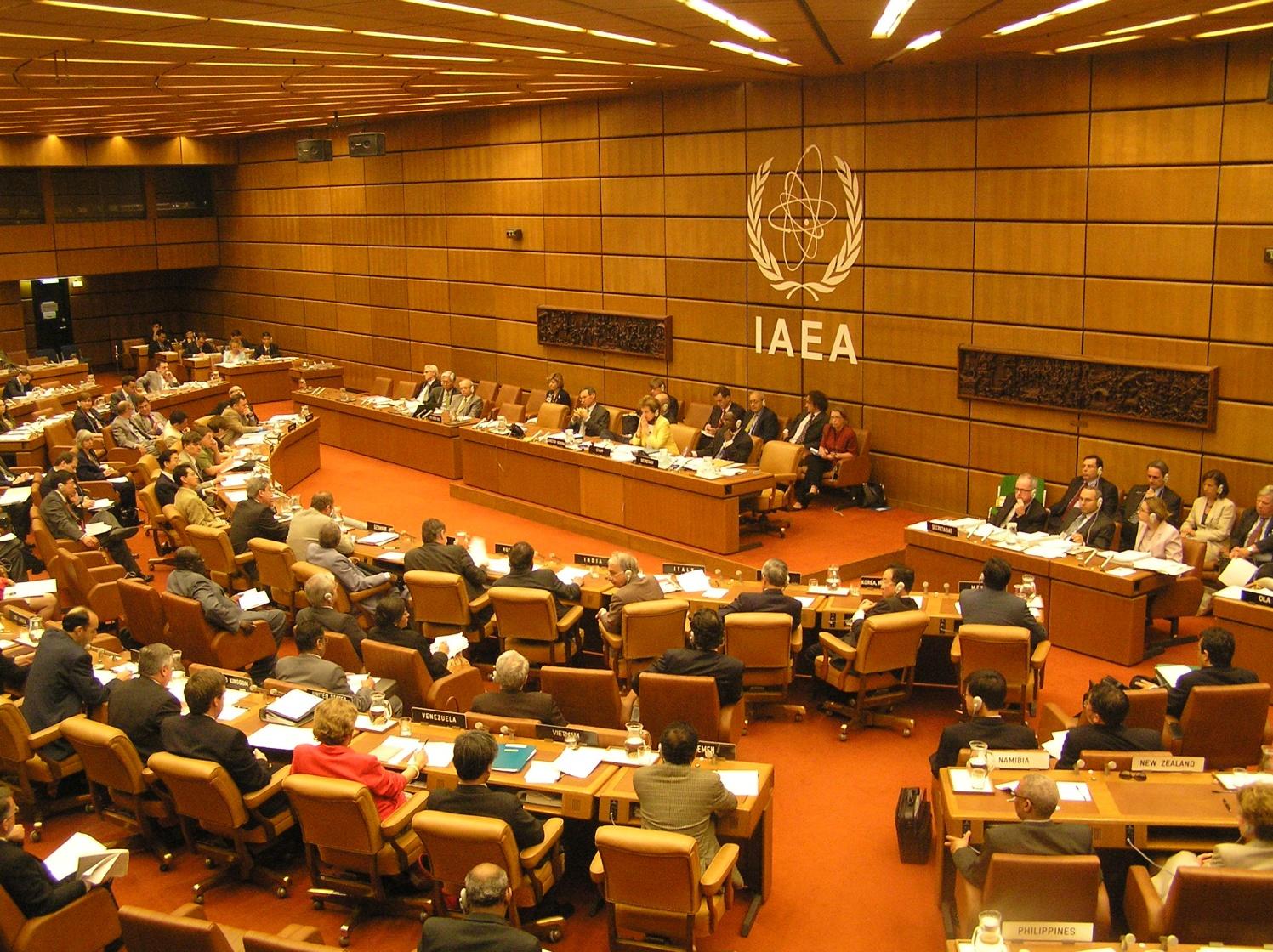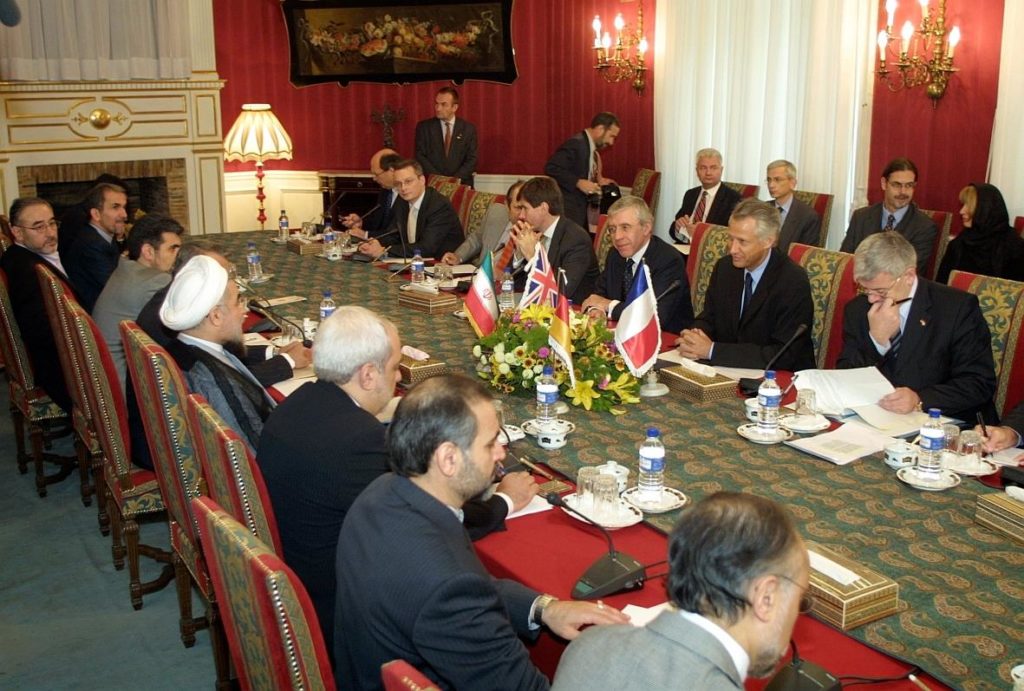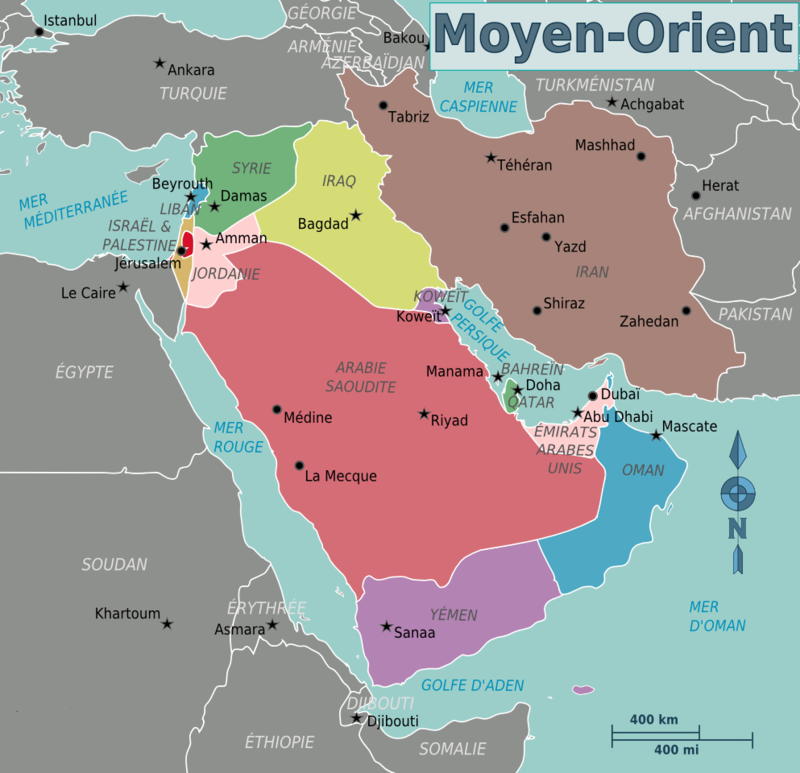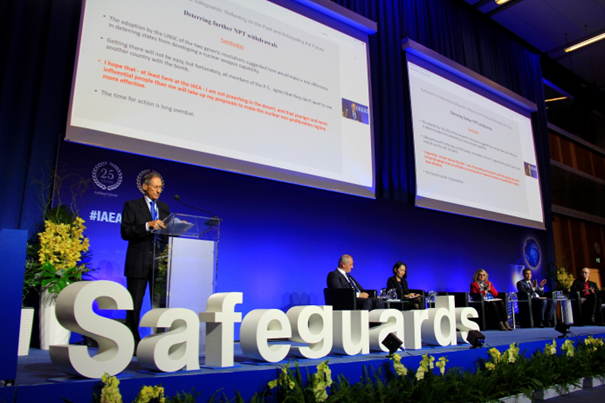Why this Blog?
For 12 years I was Managing Director of Synatom, the company responsible for supplying fuel to Belgium’s seven nuclear power stations, which covered 60% of the country’s electricity needs.
In May 1999 I joined the International Atomic Energy Agency (IAEA) in Vienna as Deputy Director General in charge of the Safeguards Department responsible for verifying the exclusively peaceful use of nuclear energy worldwide.
During the six years of my mandate, the IAEA has experienced a number of crises, including North Korea’s withdrawal from the Treaty on the Non-Proliferation of Nuclear Weapons (NPT), the discovery of Iran’s undeclared nuclear programme, and Libya’s announcement that it was giving up its military nuclear programme, which it had been developing in secret for 20 years.
In 2019, Marek Halter published his memoirs entitled ‘I dreamt of changing the world’. More modestly, over the last 20 years I have dreamt of helping to save the world from nuclear apocalypse. To this end, I have proposed the adoption of numerous measures designed to strengthen the implementation and effectiveness of the NPT.
Having noticed that some of my publications were no longer accessible on the Internet, and aware that this will increasingly be the case in the future, I thought it would be useful to set up this ‘blog’, which gives access to most of my writings.
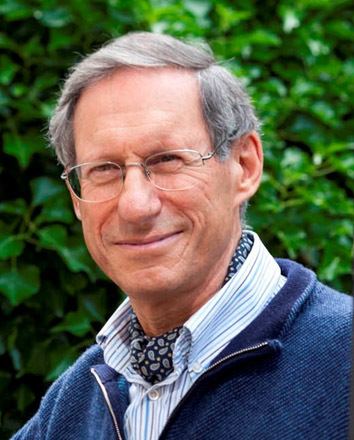
The concrete and realistic proposals I have made to reduce the risk of proliferation of nuclear weapons have so far not been implemented. Even if I believe in the butterfly effect, it will take much more than an individual with no political clout to get things moving. Let’s hope that those who hold this power today, if they are convinced by the merits of my proposals, will take them to heart and bring them to fruition, thus proving Paul Valéry wrong when he wrote in Mon Faust that “all politicians have read History, but it seems that they have read it only to draw from it the art of reconstructing catastrophes”.
Main Topics
My fight against the proliferation of nuclear weapons
I also experienced periods of discouragement when, in 2013-2014, I privately debated my ideas with officials responsible for these issues, particularly in Germany and the Netherlands (the non-nuclear-weapon states where Urenco operates its uranium enrichment plants), the United Kingdom and the United States.
The weakness of their arguments to justify their refusal to lead by example, as well as their lack of long-term vision, affected me deeply.
It is already twenty years since the Department of Safeguards of the International Atomic Energy Agency (IAEA) began to uncover Iran’s undeclared nuclear programme. On 10 November 2003, a damning report was sent to the IAEA Board of Governors, stating that Iran had mastered almost the entire front end of the nuclear fuel cycle (including the uranium enrichment process, which has both civilian and military applications), and that it had ‘developed a uranium centrifuge enrichment programme over the past 18 years and a laser enrichment programme over the past 12 years’ without informing the Agency. All this despite the fact that, in the 1980s, Iran, which was at war with Iraq, had no plans to build nuclear power stations, the one under construction in Bushehr during the Shah’s reign having been destroyed by the Iraqi air force.
Today it is probably too late to prevent Iran…
Since February 2018, I have repeatedly tried (see below) to draw the attention of our political leaders and Belgian citizens to the fact that closing Belgium’s nuclear power stations prematurely will have at least four negative effects:
– a negative effect on the cost of producing electricity;
– a negative effect on our balance of payments (due to the import of natural gas, whereas the cost of imported nuclear fuel is minimal);
– a negative effect on our security of supply (our stock of nuclear fuel represents two years’ requirements, whereas for natural gas it is less than one month’s Belgian consumption);
– and above all, a negative impact on the environment by significantly increasing…
The two countries that focus the attention of those concerned about the non-proliferation of nuclear weapons in the world are North Korea and Iran. However, over the last 20 years, other countries have attracted the attention of experts. This is particularly true of Brazil, which refuses to sign and ratify the Additional Protocol to the Safeguards Agreements and prevents the Nuclear Suppliers Group (NSG) from making it a condition for the export of sensitive uranium enrichment and spent fuel reprocessing technologies. The NSG was also weakened by the United States, which succeeded in imposing an “Indian exception” to the export criteria.
After the spectacular revelations in 2003 about Iran’s clandestine nuclear programme, little attention was paid to the less spectacular but nonetheless obvious breaches of Safeguards Agreements in South Korea and Egypt.
A Middle East Free of Weapons of Mass Destruction : A Utopia?
This year (2024), it will be 50 years since the « Establishment of a nuclear-weapon-free zone in the Middle East » was first placed on the agenda of the United Nations General Assembly, at the request of Iran (under the Shah), later joined by Egypt (under President Anwar Sadat).
In 1995, as part of a package of decisions that resulted in the indefinite extension of the Treaty on the Non-Proliferation of Nuclear Weapons (NPT), the NPT Review Conference called « Upon all States in the Middle East to take practical steps in appropriate forums aimed at making progress towards, inter alia, the establishment of an effectively verifiable Middle East zone free of weapons of mass destruction, nuclear, chemical and biological, and their delivery systems. » …
La Libre Belgique, le 03/03/2025
Aide militaire à l’Ukraine : honte à la Belgique !
La Maison-Blanche vient de traiter de façon indigne le président ukrainien Volodymyr Zelensky venu demander l’aide des États-Unis dans son effort de résistance à l’agression de la Russie. Du jamais vu. Nous sommes encore tous sous le choc. Ce fut aussi un camouflet au président Macron et au Premier ministre britannique Starmer venus, peu avant, plaider la cause de l’Ukraine auprès du président Trump.
Nous verrons dans les prochains jours si cette claque aura au moins le mérite de pousser les pays européens à soutenir militairement l’Ukraine par des actes concrets et efficaces.
La Belgique n’a pas attendu la réunion de ce dimanche à Londres pour nous dire que ce ne sera pas son cas. En mai dernier, la Belgique s’était engagée à livrer pour la fin de l’année 2024 quelques F-16 dont l’Ukraine a un besoin urgent, et une trentaine d’autres d’ici 2028…
